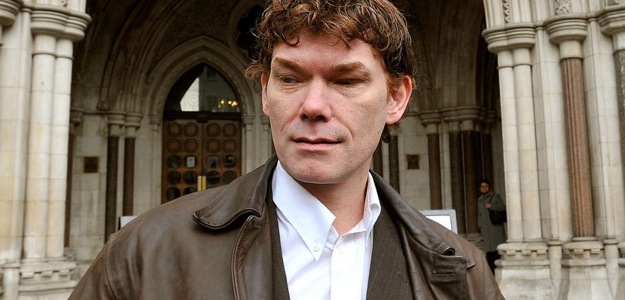 Gary McKinnon, a British hacker accused of illegally accessing almost one hundred US government computers and leaving more than 300 computers at an American naval station unusable as a result in a series of attacks between 2001 and 2002, will not be extradited to the United States to face trial. The decision to halt the scheduled extradition came today from UK home secretary Teresa May, who explained that she had made the decision based on human rights grounds.
Gary McKinnon, a British hacker accused of illegally accessing almost one hundred US government computers and leaving more than 300 computers at an American naval station unusable as a result in a series of attacks between 2001 and 2002, will not be extradited to the United States to face trial. The decision to halt the scheduled extradition came today from UK home secretary Teresa May, who explained that she had made the decision based on human rights grounds.
An arrest warrant for McKinnon was issued in the US on October 31, 2002 by the district court of New Jersey following a series of interviews with the hacker carried out by the British National Hi-Tech Crime Unit at the request of US authorities. Paul McNulty, the US attorney for the eastern district of Virginia at the time, said in a statement announcing the warrant that McKinnon was being charged with “the biggest military computer hack of all time.” A further warrant for his arrest was issued in August 2004 and in October of that year, an extradition request was also filed by American authorities. Despite this, it took until June 2005 for McKinnon to be arrested in the UK, and until July 2006 for the extradition request to be approved by the then-British home secretary, John Reid.
McKinnon was charged hacking into 97 computers belonging to the US government, and deleting files that resulted in the shut down of the US army’s network of more than 2000 computers in Washington, DC, as well as leaving 300 computers at the Naval Weapons Station Earle in New Jersey unusable. McKinnon, who suffers from Asperger’s syndrome, claimed that he was looking evidence that could prove the existence of UFOs during the hacks, which took place between February 1, 2001 and March 19, 2002.
It was McKinnon’s Asperger’s diagnosis that was the reason that was given to argue against his extradition, with his family believing that he was likely to commit suicide if moved to American detention. This argument was repeatedly rebuffed in numerous appeals against the decision, both in the British and European Court levels, as well as earlier direct requests to the British government. However, it was also the reason given by May when she explained that “I have concluded that Mr McKinnon’s extradition would give rise to such a high risk of him ending his life that a decision to extradite would be incompatible with Mr McKinnon’s human rights.”
Explaining that she has made the decision based upon “the sole issue [of] whether Mr. McKinnon’s extradition to the United States would breach his human rights,” she said that it is now up to the British director of prosecutions as to whether or not McKinnon is tried in British court. Responding to the news, a spokeswoman for the US State Department said that it was “disappointed” by the decision, and examining the details before making a further statement.
(Via.)


